Get Ahead presents the TCS Smart Business Case Study Contest for young managers, along with The Smart Manager, the management magazine!
We give you a profile and history of a company. All you have to do is study it and post your solution here, upto 500 words. The winning solution stands to win Rs 25,000!
The Smart Manager will also publish your photograph and solution in its next issue! Hurry! The last date to post your solution is September 26.
How can a small-scale enterprise with limited resources and no trained HR manager create a learning organisation? That is the challenge facing Melvin Miranda, a man with his heart in the right place, but one who can't seem to get the right solutions.
David Abraham gave a groan. From the corner of his eye, he could see his boss making straight for his cabin. An urgent quotation had to be sent, but it would clearly have to wait. From long experience, David knew that a visit from his boss would not be short one. Melvin Miranda, managing director of Miranda, was a great man but once he started talking, he kept talking.
Melvin, in fact, was the reason why David had joined Miranda Interlock Pavers Pvt Ltd 10 years ago, in 1995; the year Melvin launched the Manipal-based company. Melvin was well regarded in business circles as a highly successful entrepreneur, a multi-skilled professional and also a teacher, trainer and consultant with an innovative business approach and management style.
David had been by Melvin's side through the multifaceted problems faced by small-scale industries, ranging from starting a new venture, the legal aspects, technology upgradation, human resource development and so on. Both men were conscious of the socio-economic impact of the small business.
"David," boomed Melvin, "Glad I caught you! I've been thinking about our new office in Goa. I'm not sure that the boys out there do things the way we like to do things. We need to transfer our culture there, but I'm sure they also have some learnings for us here."
Melvin was a firm believer in the concept of the learning organisation and his management philosophy was, 'To survive in the market, you need to make the system a learning system.'
"At the end of the day, what matters is what you could do for your people and society," he continued. "I believe in providing employment to people, and training them to grow with the organisation."
Outwardly David nodded acceptance. Inwardly, he was asking himself whether Melvin had been able to implement his philosophy successfully.
Concrete interlocking blocks was a new concept when Melvin pioneered Miranda Interlock Pavers and, by 2005, the firm had carved a commendable niche for itself in the construction engineering market. A small-scale company, it manufactured pavement blocks and hollow blocks. It also undertook laying jobs, curbstones and civil works. Its products were widely used in roads and paved areas intended for the pedestrian or in low speed vehicular traffic and parking areas. It had won many prestigious awards from both state and central governments since its inception. Over time, it had established marketing offices at Bangalore, Goa and Mangalore.
The objectives of the company were:
§ To manufacture and sell concrete interlocking blocks, hollow blocks and kerb stones and make them available for construction activity.
§ To provide employment to the people by employing them in its manufacturing and marketing activities.
§ To implement the concept of interlocking pavement blocks and popularise their product concept.
§ To maintain customer satisfaction by maintaining the quality of the product and regular supply of the product at a reasonable price as per the customer's specification.
§ To exploit fully the potentialities of the sales personnel by providing them proper training, motivation and facilitate them to grow along with the organisation.
§ To maximise profits with acceptable limits, so that both the management and the employees can benefit and to facilitate the future expansion of the unit.
Miranda Interlock Pavers was governed by six board members. It employed 125 workers. In FY 2004, its paid up capital was Rs 11.2 million; total assets at market value, Rs 75 million; reserves of Rs 2.5 million; and annual sales, Rs 45 million.
Starting the business was not a challenge but sustaining it had become a major challenge. Miranda Interlock Pavers had several competitors for concrete blocks but its key competency lay in manufacturing pavement blocks.
New competitors however had recently entered this bastion, and Miranda Interlock Pavers' managers were beginning to feel the heat. One new entrant had slightly better technology, another slightly better marketing, a third slightly lower costs. To deal with these complexities, Melvin had begun prodding his managers, asking them to focus on creative planning, and developing valuable and useful knowledge.
Melvin wanted an internalised commitment by all involved and a sharp understanding of the criteria for effectiveness to meet the challenges of complexity. "Shared vision, team approach and adopting modern technologies in the work process for continuous improvement brings the learning culture into the system," he exhorted his team. "We need to improve ourselves if we are to survive."
Melvin's management approach was to motivate and encourage people to perform well and he tried to ensure job satisfaction. Earlier, he used to meet each one of his employees, to know about their work progress and their needs, and to ensure that processes were in place. As the company grew, he could not concentrate on each and every aspect of the company and was forced to delegate a few tasks to the people (exhibit 1 explains the way the tasks were delegated).
Despite the expansion of business activities and sales, and inspite of the churn of people at the branch offices, Miranda Interlock Pavers had retained more than 60% of its employees since its inception. This strengthened Melvin's belief that a large part of his success was due to his people.
He enjoyed the fact that two of his key people were old friends. The general manager, S Vishwanathan, had wide experience in handling the myriad challenges of running a small business. The production and operations manager, David, a former schoolmate of Melvin's, was a true techie, interested in the latest innovations.
Miranda Interlock Pavers' machines were due for upgradation, but the management had not yet decided to switch over to new machines, as the old ones seemed to be working smoothly, without any delay of supply to its customers.
Melvin's genuine concern for employees manifested itself in several ways. At one point, he launched an in-house cooperative store to make available grocery items at a subsidised price to employees. But, somehow, it was not successful.
Another non-starter was a scheme where all employees were asked to deposit Rs 50 every month and any one in need could borrow a maximum of Rs 15,000 at an appealing 5% interest. The scheme started off well, but after some time there were no takers for the money. He then designed a new scheme where the company would use the money and pay employees 10% interest. Since the employees could not understand the logic of the offer, the idea was abandoned, and the money returned to them.
As the Miranda Interlock Pavers grew, Melvin brought in a few professionals at the middle managerial level to improve the company's processes. But the original employees did not accept the change and felt they are not being given the respect or value as they used to get before. Melvin had hoped for a rise in employee productivity. Instead, they become a little suspicious of the systems approach.
At the front line level too, Melvin was in the process of introducing major changes. So far Miranda Interlock Pavers had been providing 'on the job training' for workers, and all salesmen underwent a short induction program introducing them to the market, client features and their incentives.
Currently an effort was on to encourage office staff to become well versed with all the jobs being done in the office so that one absence would not affect routine processes. Through this, Melvin hoped to build a team approach and a greater willingness to share responsibilities. He also invited Aptech to organize a training program to make all the office staff conversant with computer usage.
A sensitive manager, Melvin knew that not everyone was happy with the changes that were being introduced. Though everyone in the organisation knew that change was necessary to keep Miranda Interlock Pavers nimble and competitive, a sense of unease had crept into the company. And it was to address this sense of unease that Melvin asked an independent HR agency to conduct a survey on how managers perceived the organisation.
The study discovered some uncomfortable facts as well as some reassuring signs:
Age: More than 60% of the people have worked in Miranda Interlocking Pavers since its inception. People at the senior management level are in the age group of 45-50 years except the finance manager, who is younger. In other cadres, they either belong to the 22-35 age group or the 30-40 age group.
Managing director: The managing director is seen as the person responsible for promoting learning in the organisation, and the company was viewed as being a learning organisation (exhibit 2).
Melvin himself was perceived as being consistent with the company's objectives. But employees felt frustrated that they rarely got opportunities to talk to the general manager or the managing director as the managing director now played the role of a commander-in-chief, rarely spending time with his employees at different levels. "We hardly get any occasion to meet MD and GM." This statement was made in varied forms.
Learning: Approximately 60% of employees were familiar with the organisation learning principles, and appreciated that many managers did try to implement tools like 'on the job training' and 'demonstration'. However, 20% of employees felt these tools have been practised consistently only in the past one year. A significant majority felt training was only available to front line employees (exhibit 3).
Rewards: Hierarchies have developed over the years. While the company vision tries to marry profit with personal success, employees felt only tasks were delegated, not decision-making. Miranda Interlock Pavers was losing the practice of earned authority, performance and rewards. Rewards and incentives based on performance have taken place only once, in the tenth year of its establishment. This has led to an erosion of team spirit.
Computer literacy: Computers were installed a few years ago but only staff at head office operate IT tools. The Tally package is used to maintain accounts. Other communication tools like email and voice mail are available only at the senior management level. An attempt was made in the previous year to make employees computer literate but it did not materialise (exhibit 4).
Transparency: A large number of respondents felt corporate values were not aligned with business processes, and the negative cultural factors were cited as the major barriers in the information sharing process. Ninety percent of the people were not aware of the company's sales. They felt they are not encouraged to take risk and performance based work routines. Information is restricted to their routine tasks and the employees are not aware of the futuristic plans of the company and the know-how about the competitors (exhibit 5).
Practical information: The organisation gave importance to knowledge about customer requirements, technological trends and competitor's intelligence as factors for business success. But little importance was given to the relationship between the employee and employer, employee needs and social and political requirements. People assert that those who facilitate knowledge flow have a role in changing individual and corporate behaviour but it has not been practically implemented or observed. Information use and sharing has not been practised fully. Knowledge transfer is rarely practised (exhibit 6).
Consultants: The functional units that lead organisational learning activities are quality (69%), organisational development (56%) and HR (51%). Strategic planning and Information system have not been considered important role players. People at the managerial level assert that management consultants are the only external sources who promote organisational learning principles in an organisation.
Achievements: The breakthrough performance achieved at Makers is mainly in the manufacturing and marketing area (exhibit 7).
The change management concept was not properly introduced (exhibit 8).
IT: The company has invested on IT activity to focus on financial management and to perform routine tasks. IT activity has not been used as a tool for knowledge sharing and exchange with external resources. People believe IT has enabled them to increase their ability to meet market need and customise the product and services. Their awareness about the fact that it will reduce the cost, time and risk is given in exhibit 9.
The concept of Information System is yet to be deployed. Ninety percent of the people opt for e-mail and also people at managerial level feel the importance of the new IT gadgets as they have branch offices at different places.
~ A majority of the employees revealed that the organisation has been able to measure the organisational learning results in customer satisfaction and productivity only.
~ Discussion with the executives also revealed that the targeted success could not be achieved owing to lack of professionalism in the recent years.
QuestionAs Miranda Interlock Pavers attempts to evolve into a learning organisation, what is it doing right and should retain, what practices should it discard and what processes should it introduce?
Submit your case analysis here!
Padma V Upadhya is a professor at the Acharya Institute of Management and Sciences.
Click here to avail of a special subscription offer for rediff Get Ahead readers!
Published with the kind permission of The Smart Manager, India's first world class management magazine, available bi-monthly.

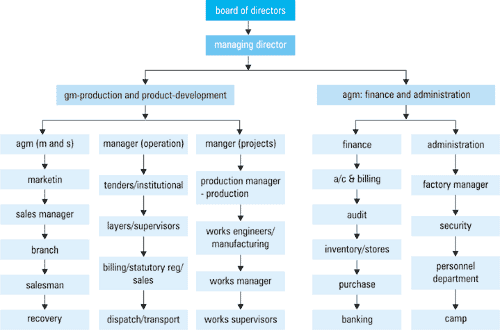
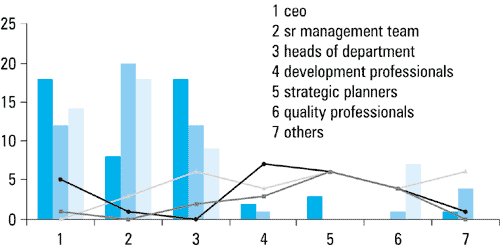
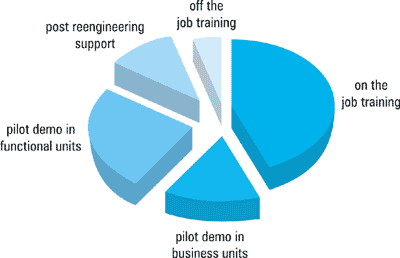
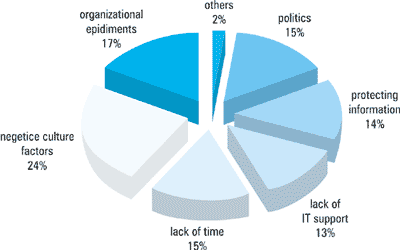
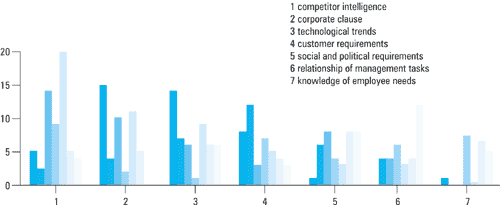
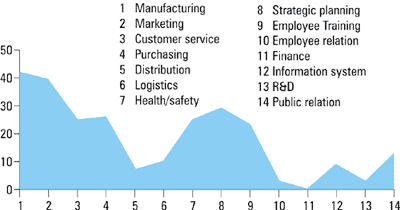
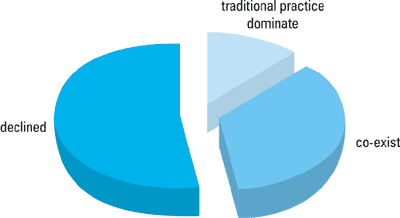
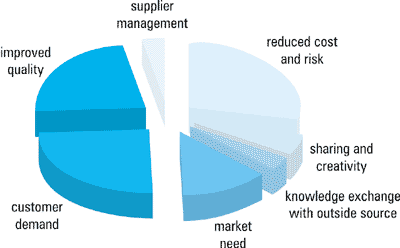







More from rediff